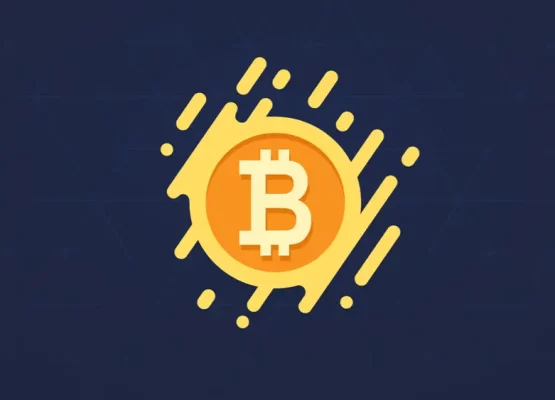The bitcoin market has seen tremendous growth in the past several years. The huge profits made by crypto traders appear to be continuing.
The upheaval brought on by the creation of bitcoin wallets is here to stay.
Multinational corporations are investing in blockchain research and development to capitalize on this shift. On the other side, interacting with bitcoin and other cryptocurrencies is simpler, although blockchain wallets still leave many people scratching their heads.
The prospects for cryptocurrency trading are promising, making this a good time to put resources into developing a comprehensive cryptocurrency wallet.
Today, the challenge is to design a crypto wallet that consumers will use. This article will cover the fundamentals of developing a cryptocurrency wallet, including its necessity, the features it should have, and the best practices for doing so.
Exactly What Does The Term “Cryptocurrency” Mean?
Cryptocurrency is a digital currency that may be used to buy goods and services online. Due to its decentralized nature, no organization is responsible for its upkeep or distribution of funds. Intrigue arises from the fact that blockchain technology is being used in trading virtual currency. In this sense, a blockchain is a public ledger that everyone can view. Blocks are created when a transaction takes place on the blockchain. Together, these blocks form an immutable record of all cryptocurrency deals.
Various Cryptocurrency Wallets
Below, we’ve outlined the various crypto wallets available.
Electronic Purses
Desktop bitcoin wallets are by far the most common and widely used type. Users can safely store their private keys on their devices. The wallet is much like any other software that needs to be installed. These wallets work with Mac OS X, Windows, and Linux, among others.
Bank Accounts in the Cloud
These wallets require a one-of-a-kind key to be used. If you need access to your money but don’t have a computer, one of these wallets will come in handy. The only problem is that they can be attacked by hackers online.
“Bitcoin hardware wallets”
One of the most widely adopted developments in crypto wallets, this feature enables users to keep a backup copy of their private key in the wallet. These wallets imitate the security of a traditional safe. They’re the best option for those who rarely trade cryptocurrencies.
Wallets made of paper
Users’ secret and public authentication keys are printed on paper wallets. Among all wallet options, this one is the most vulnerable. An individual’s bitcoin wallet is only as safe as the paper it is printed on.
The Convenience of a Mobile Wallet
Rather than choosing between online and desktop wallets, this offers the best of both worlds. Users may access their cryptocurrencies via an app on their smartphones from almost everywhere on the planet. The production of bitcoin wallets is a specialized industry, and many organizations provide their services in this area.
What Steps Should I Take to Create My Bitcoin Wallet?
So, let’s look at how to implement that into a cryptocurrency program.
Get educated on blockchain technology and digital currency.
The creation of cryptocurrency wallets is impossible without blockchain technology.
Before creating crypto wallet software, you should learn about Blockchain Wallet Development and cryptocurrency.
Make use of open-source library programs that use the standard cryptocurrency.
Virtually all cryptocurrency software is freely available and open source. So there’s no need to reinvent the wheel. BitcoinJ SDK and Coinbase SDK are just two examples of free libraries and tools you can use to start building Bitcoin applications.
The Coinbase Software Development Kit (SDK) is a Java library that may be used on any platform. Bitcoin wallets for mobile platforms like iOS and Android can be developed with its help. Python, Java, Ruby, and other widely used programming languages are all supported by this package.
The BitcoinJ SDK is user-friendly and comes with extensive documentation. Additionally, BitcoinJ is JVM-compatible, which may be used with various programming languages.
APIs Should Be Used
Implementing Application Programming Interfaces in cryptocurrency wallet development is a sensible strategy. You can effortlessly synchronize your cryptocurrency wallet with the blockchain ecosystem using a distributed ledger API. Coinbase, Bitcore, and Factom are three of the most well-known APIs.
When using an API, your development team may do jobs much more quickly, speeding up the app creation process.
Yes, Cloud
It would be best if you decided which cloud services will work best for your undertaking. If you’re building a web app, consider using a PaaS (Platform as a Service) instead of a traditional server.
However, if you’re looking to create a cryptocurrency wallet app, you’ll need to find a BaaS (Blockchain as a Service) provider and include their cloud service. Companies like Amazon, Azure, and Microsoft offer BaaS options to their customers.
Depending on your requirements and preferences, you might use any of them to develop a secure Bitcoin wallet application.
Pick the Right Bundle of Gadgets
Your app’s success will depend on the technology stack you employ.
A web app, for instance, can be developed with the help of languages like Node.js and Angular.js, in addition to HTML5 and CSS3. If you use this, you’ll have an easier time making a secure web app with widespread appeal.
Either Java or Kotlin can be used to create a native Android app. Swift and Objective-C are both supported for developing iOS apps. Getting the right technology stack is as easy as hiring a top bitcoin wallet development service now.
Keep security as your top priority.
When creating bitcoin wallet software, security is of the utmost importance. Therefore, you need to guarantee the security of your cryptocurrency app.
Two-factor authentication (2FA), such as fingerprint, face ID, or hardware authentication, can be used further to tighten the security of the cryptocurrency wallet application.
Developers should ensure regular security updates. They need to deploy cutting-edge technologies to quickly find and fix any flaws and other security issues.
Check out the Competition
You naturally want people to use your cryptocurrency wallet generation program, so that makes sense. Therefore, monitoring the activities of your rivals is essential. Know their process and how they get results. You can review the features to get ideas on what customizations will work best for your app.
Additionally, to gain an edge over the competition, you need to be aware of the environment in which you operate.
Now is the time to begin making your app.
Here are some guidelines to keep in mind when you get started developing crypto wallet software:
- Choose everything that will be included in your app.
- Construct the software’s code and connect it to the backend database.
- Make the UI easy to understand and use.
- If you’re launching a wallet, ensure it’s been tried and tested.
Suffescom Can Assist You In Creating A Powerful Crypto Wallet App.
Using a bitcoin wallet is essential for each cryptocurrency transaction. Users can keep Bitcoin, Ripple, and Ether, as well as contribute, swap, and trade these cryptocurrencies. Are you initiating a service for Crypto wallet app development? We can help.




